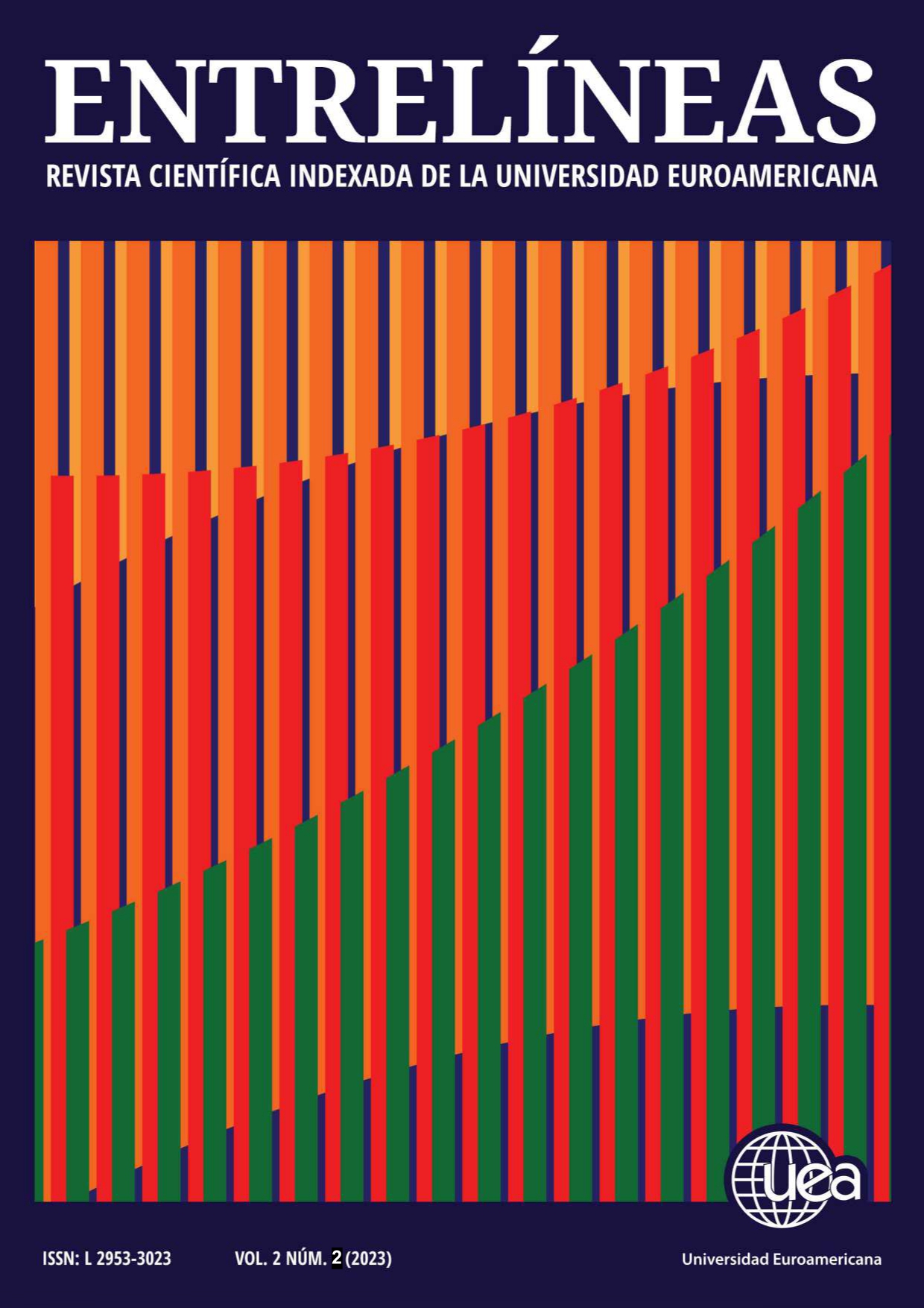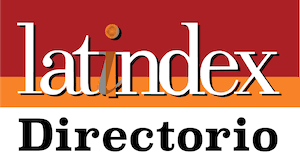Theoretical perspectives on the dynamics of international marketing
DOI:
https://doi.org/10.56368/Entrelineas227Keywords:
business administration, international trade, market research, marketingAbstract
International marketing addresses those activities competent in the market mix and all those that challenge the development of international trade. By reviewing some theoretical perspectives on the dynamics of international marketing, a theoretical framework emerges that allows the analysis of the fundamental concepts that guide strategic decisions in the international arena. The present research is qualitative, documentary, and inductive at a descriptive level, considering that to achieve the objective of the study it was required to explore the internationalization processes of companies with marketing support based on the variables international marketing and international trade. The results expose theories that range from classic to contemporary theories and, once the characteristics of the seven selected theories have been explained, it is understood how each of them drives the dynamics of international marketing because, as the environment is not only changing but volatile, international marketing offers theoretical perspectives that help companies examine that environment, so that they adjust their strategies and tools, acting accordingly.
Downloads
References
Arellano Cueva, R., Rivera Camino, J. & Molero Ayala, V. M. (2013). Conducta del consumidor: Estrategias y políticas aplicadas al marketing. Esic Editorial.
Barrios Leonel, J. E. (2019). Plan Estratégico de la Empresa Messenger de Colombia SAS, para Posicionar el Producto APP Myentrega. com en el Sector Corporativo de Colombia. (Tesis de Especialización). Universidad Nacional Abierta y a Distancia – UNAD.
Buendía Rice, E. A. (2013). El papel de la Ventaja Competitiva en el desarrollo económico de los países. Análisis económico, 28(69), 55-78.
Camisón, C. (1998). Dirección estratégica de empresas y destinos turísticos: balance del estado de la cuestión y propuesta de un marco integrador orientado a la competitividad. VIII Congreso Nacional de ACEDE, Empresa y Economía Institucional, Libro de ponencias, II, Las Palmas de Gran Canaria, 49-86.
Cateora, P., Gilly, M. & Graham, J. (2010). Marketing internacional. McGraw-Hill.
Domínguez, P. R. (2000). Introducción a la gestión empresarial. B-EUMED.
Escobar, A. G. (2010). De la ventaja comparativa a la ventaja competitiva: una explicación al comercio internacional. Publicaciones Icesi.
García Cruz, R. (2002). Marketing internacional. ESIC Editorial.
Guerrero, D. (1996). La técnica, los costos, la ventaja absoluta y la competitividad. Comercio Exterior, 46(5), 400-407.
Hernández Espallardo, M. (2001). El nuevo concepto de marketing en la empresa. Revista Colombiana de Marketing, 2(2), 1-15.
Kelly, A. & Köpsell, I. (2010). A discussion of globalization theories- through international consumer perceptions. (Bachelor Thesis). University of Dalarna.
Kiseleva, A.M. & Gokova, O.V. (2020). Marketing Strategies in the Formation of Tourism Clusters. Advances in Economics, Business and Management Research, 139, 592-597.
Martínez Valverde, J. F. (2017). Marketing internacional. Ediciones Paraninfo, SA.
McCormick, D. (2005). El futuro de los clusters y las cadenas productivas. Semestre económico, 8(15), 87-102.
Mercado, S. (2006). Comercio internacional. Editorial Limusa.
Narváez, M., & Fernández, G. (2008). Estrategias competitivas para fortalecer sectores de actividad empresarial en el mercado global. Revista Venezolana de Gerencia, 13 (42), 233-243.
Parente-Laverde, A. M., Gómez, D. C., Gil, M. I. & Pérez, M. E. (2016). La adaptación y estandarización como estrategias de penetración de compañías minoristas: Adaptation and standarization as retailers penetration strategies companies. QUID: Investigación, Ciencia y Tecnología, (27), 23-32.
Porter, M.E. (1990). La ventaja competitiva de las naciones. Plaza y Janés.
Porter, M.E. (1998). Clusters. Innovation, and Competitiveness: New Findings and Implications for Policy. Harvard Business Review, 1(2), 130-145.
Porto, N. (2005). Economía del turismo: un enfoque desde la teoría del comercio internacional. Departamento de Economía, Facultad de Ciencias Económicas, Universidad Nacional de La Plata.
Renau Piqueras, J. J. (1996). El porqué, el cómo y el dónde de la internacionalización de la empresa. RAE: Revista Asturiana de Economía, (6), 41-62.
Reynoso, C. F. (1998). La teoría de recursos y capacidades: un enfoque contemporáneo en la gestión empresarial. Carta Económica Regional, (61), 27-31.
Schumacher, R. (2012). Adam Smith's theory of absolute advantage and the use of doxography in the history of economics. Erasmus Journal for Philosophy and Economics, 5(2), 54-80.
Silva, H., Juliao, D., Ortiz, M., Martínez, D., González, J. & Giraldo, M. (2014). Marketing conceptos y aplicaciones. Universidad del Norte.
Vergara Cortina, N. (2012). Marketing y comercialización internacional. ECOE Ediciones, España.
Zhao, S., & Priporas, C. V. (2017). Information technology and marketing performance within international market-entry alliances: A review and an integrated conceptual framework. International marketing review, 34(1), 5-28.
Downloads
Published
Issue
Section
License

This work is licensed under a Creative Commons Attribution-NonCommercial 4.0 International License.
You are free to:
- Share — copy and redistribute the material in any medium or format
- Adapt — remix, transform, and build upon the material
- The licensor cannot revoke these freedoms as long as you follow the license terms.
Under the following terms:
- Attribution — You must give appropriate credit , provide a link to the license, and indicate if changes were made . You may do so in any reasonable manner, but not in any way that suggests the licensor endorses you or your use.
- NonCommercial — You may not use the material for commercial purposes .
- No additional restrictions — You may not apply legal terms or technological measures that legally restrict others from doing anything the license permits.









